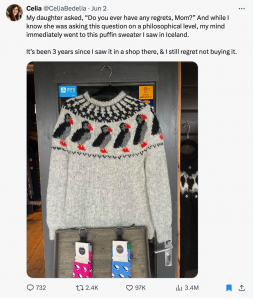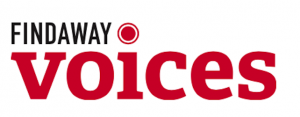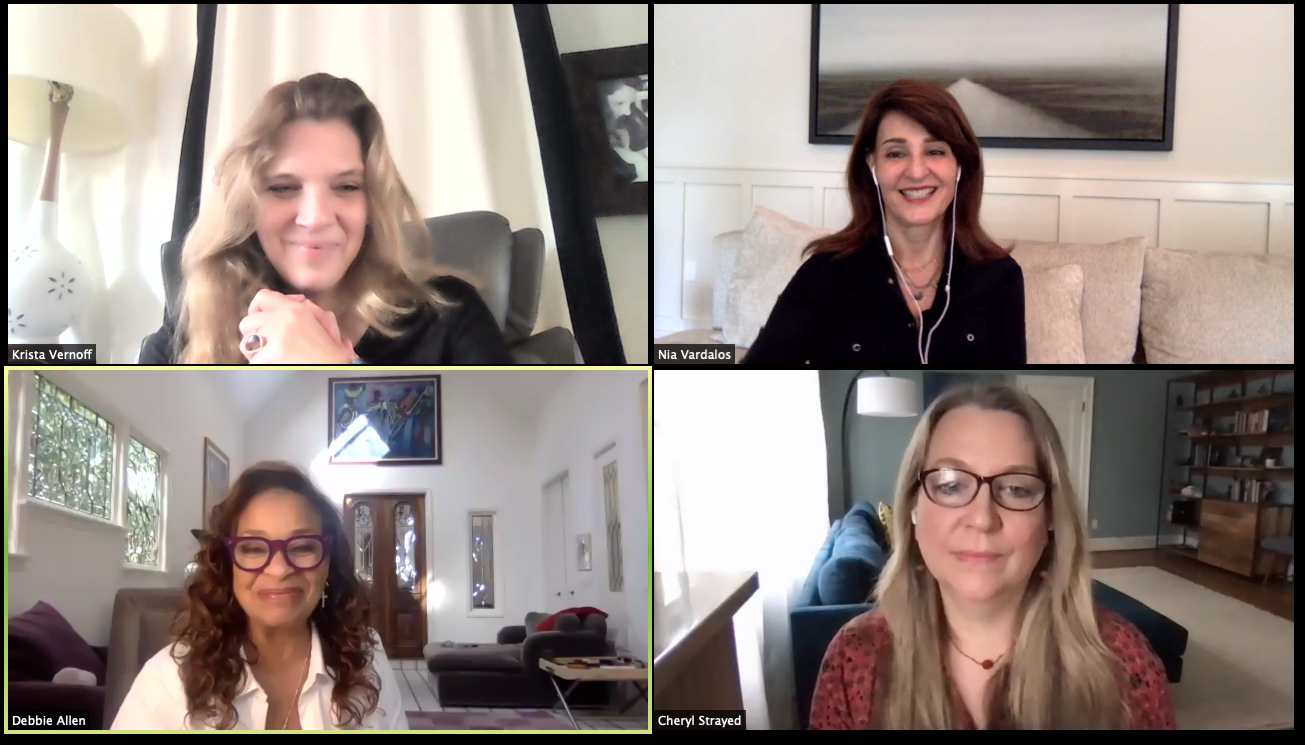A few days ago, I happened to see this tweet from @CeliaBedelia:

My daughter asked, “Do you ever have any regrets, Mom?” And while I know she was asking this question on a philosophical level, my mind immediately went to this puffin sweater I saw in Iceland. It’s been 3 years since I saw it in a shop there, & I still regret not buying it.
Her comment struck a chord with the Twitterverse. Her post received hundreds of replies about similar missed shopping opportunities and garnered thousands of likes.
I have my own story about the same sort of regret, along with some ideas about living with no regrets.



